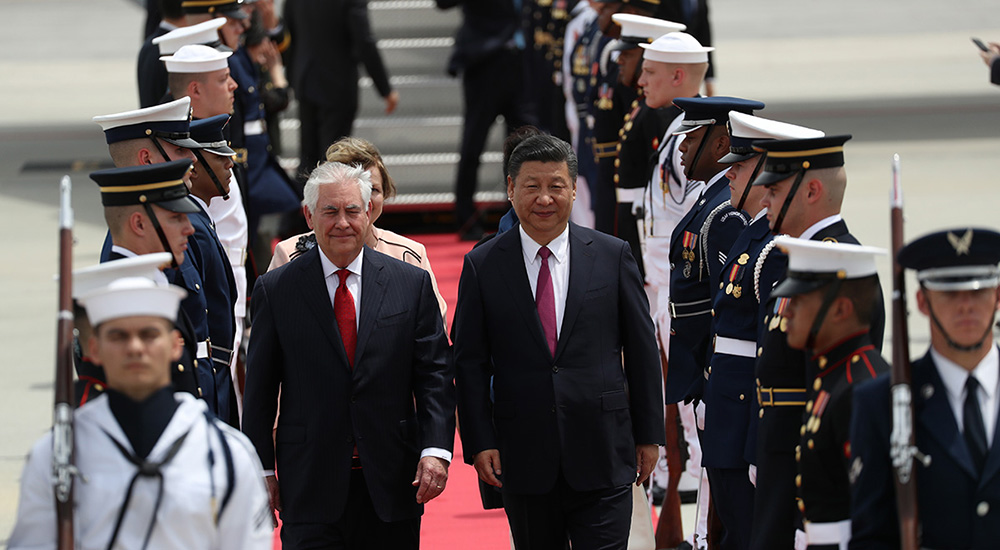Beijing may be ready to deal as it eyes slowing growth, a weakening yuan and other challenges.
In its first months, the Trump administration has pivoted on trade, backing off from threats to overhaul the North American Free Trade Agreement and reversing Mr. Trump’s campaign pledge to label China a currency manipulator. Those changes are welcome, but in an interview last week with The Wall Street Journal, the president went further, saying that he might soften his trade stance in exchange for help with “the problem in North Korea.”
Mr. Trump may be ceding too much ground. In fact, he may have more leverage over China than he thinks.
Claims that Beijing manipulates the value of the yuan never made much sense as an explanation for Chinese growth or for the persistent U.S. trade deficit with China. First, it’s impossible for monetary policy (including exchange-rate policy) to produce long-run growth or trade consequences. This principle of long-run “monetary neutrality” is one of the few tenets of economics that is nearly universally accepted.
Second, the facts show that the Chinese government has not been trying to keep its currency weak. The opposite is true. The yuan appreciated 26% from 1995 to 2014. And China’s “real exchange rate” (which captures the relative competitiveness of the prices of goods sold by China and its competitors) increased even more, 53% over the same period.
When a country’s real exchange rate appreciates....
Read the entire piece here at The Wall Street Journal
______________________
Charles W. Calomiris is the Henry Kaufman Professor of Financial Institutions at Columbia Business School, a professor at Columbia University’s School of International and Public Affairs, an adjunct fellow at the Manhattan Institute
This piece originally appeared in The Wall Street Journal
